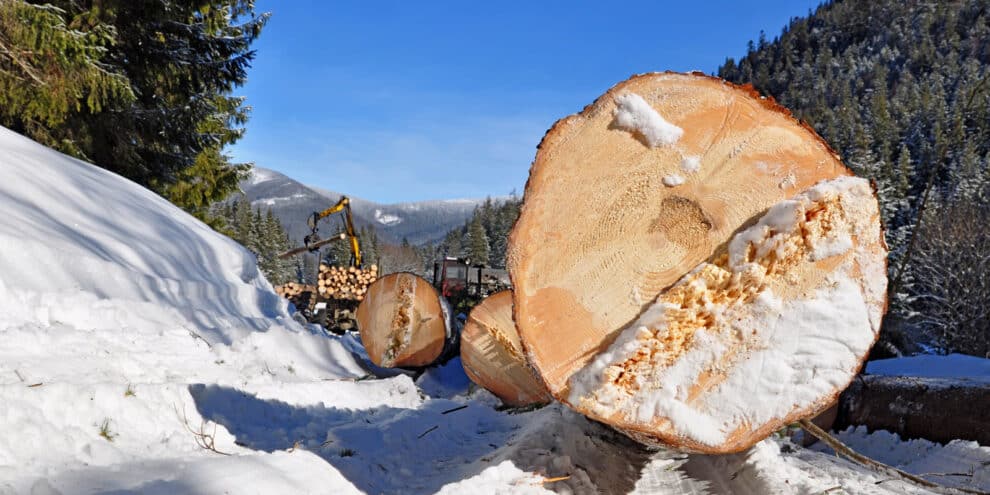Hidden beneath the verdant canopies of our forests lies a treasure trove of economic potential that often escapes our notice—the timber industry. The timber industry holds one key to substantial economic growth, and it remains a worthy investment choice for new and seasoned investors.
Research conducted by the Forest Economic Advisors (FEA) reveals that every million dollars in timber sales generates approximately 12.3 direct jobs, 15.5 indirect jobs, and 7.3 induced jobs. The employment opportunities span various sectors, from logging and transportation to manufacturing and retail. As the industry thrives, it generates significant revenue globally for countries and companies—as well as communities. It creates resilient communities that enjoy substantial income growth and low unemployment rates.
Moreover, timber’s impact on the Gross Domestic Product (GDP) should not be underestimated. A study published by the U.S. Forest Service demonstrates that the forest products industry contributes approximately $200 billion annually to the U.S. economy, accounting for 1% of the country’s GDP. This infusion of capital fuels economic growth, enabling investments in infrastructure, education, and public services.
Sustainability is heavily emphasized by the timber industry, ensuring the longevity of our natural resources. Through selective harvesting, reforestation, and the preservation of biodiversity, timber companies strike a balance between environmental stewardship and economic growth. Sustainable forest management safeguards the health of our forests and creates outcomes that are economically viable.
Timberland has been the top untapped asset class, but it has emerged as an appealing investment choice for astute investors who want to diversify their portfolio of investments. It is a resilient class with a track record spanning over three decades, it delivers stable long-term returns.
Here’s why timber stands out as an attractive investment option:
1. Consistent Long-Term Returns
Timberland investments offer the potential for long-term appreciation, competitive returns, and have shown low or negative correlation with publicly traded securities. According to a study published in the Journal of Forestry, timberland investments have historically outperformed traditional asset classes, providing reliable inflation-adjusted returns.
2. Hedge Against Inflation
Investors recognize the inflation-hedging properties of timberland. Timber prices tend to rise with inflation, since real assets are physical inputs directly consumed in a working economy. This inherent inflation protection, coupled with the ability to generate ongoing income through sustainable harvests, makes timber an attractive option for investors seeking to preserve and grow their wealth.
3. Portfolio Diversification
Timberland is one of the ultimate alternative investments investors can consider to diversify their portfolio away from traditional asset classes. It’s essential to diversify because diversification reduces risk and increases the chance of reward. Research by Cambridge Associates suggests that timber investments exhibit low correlation with other asset classes, thereby enhancing the overall stability of a well-balanced portfolio.
The timber industry’s potential for economic growth is as awe-inspiring as the majestic forests it sustains. With its ability to generate jobs, contribute to GDP, and promote sustainable practices, this industry remains an untapped resource brimming with possibilities. Furthermore, timber’s reliability as an investment option, offering steady long-term returns and diversification benefits, positions it as a compelling choice for astute investors.
This content may not be used or reproduced in any manner whatsoever, in part or in whole, without written permission of LANDTHINK. Use of this content without permission is a violation of federal copyright law. The articles, posts, comments, opinions and information provided by LANDTHINK are for informational and research purposes only and DOES NOT substitute or coincide with the advice of an attorney, accountant, real estate broker or any other licensed real estate professional. LANDTHINK strongly advises visitors and readers to seek their own professional guidance and advice related to buying, investing in or selling real estate.









Add Comment